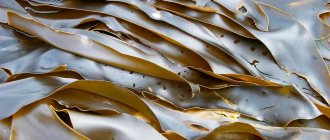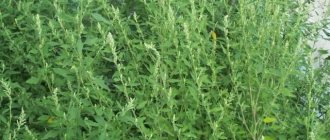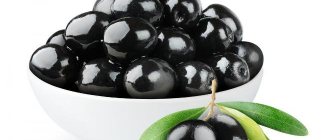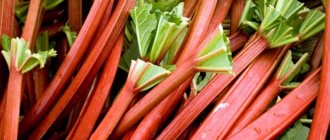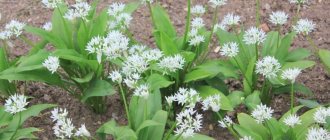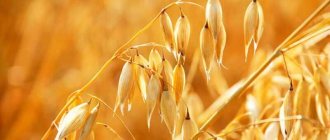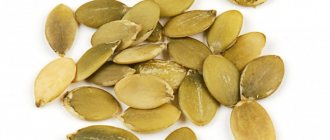Humanity has always strived to find means that can prolong youth and longevity. Brown algae, such as fucus and kelp, are considered one of the sources of health, the most valuable storehouse of useful natural ingredients. Representatives of the class of lower plants grow in the seas and oceans on the rocky bottom of the deep sea. They do not have roots like land plants. The thallus of underwater inhabitants are attached to the rocky bottom with stems that resemble ropes in strength and structure. What are the benefits of kelp and fucus? How are unique representatives of the underwater kingdom used in medicine and cosmetology?
Where does kelp grow, what is it useful for?
Sea kale or kelp is the most popular seaweed in Russia, Eastern countries, and all over the world. Its family includes more than 30 species, each of which is useful and widely known for its healing and rejuvenating properties.
- In Russia, kelp grows in huge quantities in the Far East. In particular, the Sea of Okhotsk is considered one of the richest seaweed plantations in the world.
- In Eastern countries, for example, in China, Japan, Korea, a unique algae is grown specially. Its healing properties have been known for a long time. During the time of Emperor Kann-Si, who reigned in the Mukden province, an order was issued according to which all residents were obliged to eat at least 5 pounds of dried underwater plant during the year. This was done on the advice of doctors. So they tried to fight goiter, which at that time suffered from the population of the province.
Chemical composition, properties
Laminaria has a unique balanced composition, containing the most important vitamins, minerals, and trace elements for the body. Among them, the most important are:
- iodine, sodium, iron, potassium;
- calcium, phosphorus, magnesium, sulfur;
- vitamins C, E, group B, especially B 12, B1, B2;
- fructose, polysaccharides, amino acids;
- dietary plant fibers.
Sea kale is especially rich in iodine, which, due to its natural nature, is quickly and easily absorbed by the body. This is an excellent supplement for the prevention and treatment of thyroid problems. A product that improves digestion, metabolic processes, and strengthens the immune system.
- It is recommended to use cabbage for weight loss and chronic constipation. This is because it improves intestinal motility and actively removes waste products.
- Research by scientists has proven that the plant helps cleanse the blood, improves the condition of blood vessels, and is useful for bleeding of various etiologies.
- Laminaria is considered an effective natural remedy for the prevention and treatment of various neoplasms. It not only stops the growth of tumors, but also, due to its rich composition, activates the body’s hidden reserves.
Harmful properties of fucus
If seaweed is consumed incorrectly, in very large quantities, or dry, some problems or side effects may occur. Due to the excess iodine in the body, which is contained in algae, disruption of the thyroid gland may occur, or it may cause mild poisoning.
Therefore, be careful with the consumption of fucus algae, and always monitor the quantities in which you eat this seafood delicacy.
More about useful products:
Properties, chemical composition of fucus
Fucus is also called sea oak or grape, pig or humpback fucus, king algae. Externally, the thallus of the plant looks like a light brown or yellow-green ribbon, strewn with bubbly growths filled with air. Each can reach a length of 1.3-1.5 m. Distributed almost all over the world; in Russia, the largest plantation is located in the White Sea, where industrial production of this useful crop is established.
The chemical formula of fucus contains up to 30 micro-macroelements, a lot of nutritional ingredients that are easily absorbed by the human body. The main ones can be called:
- iodine, magnesium, phosphorus, iron;
- sulfur, zinc, potassium, barium, selenium;
- ascorbic acid;
- vitamins D, E, A, group B;
- polyunsaturated fatty acids;
- amino acids, fucoidan, others.
The culture is especially rich in iodine, which is a biological form that is easily absorbed by the body. Fucus is widely used for the treatment and prevention of thyroid diseases. Known for its unique ability to satisfy hunger, break down, and remove fat cells, promoting rapid weight loss.
- Normalizes digestive and metabolic processes and is considered a strong diuretic.
- Promotes the removal of cholesterol and prevents the appearance of cholesterol plaques.
- Prevents blood clots and strengthens the heart muscle.
- Useful for diabetes, diseases of the nervous system, and is considered a powerful immunomodulator.
- It has pronounced sedative and analgesic properties.
- It is considered a good antibacterial, wound-healing agent, and is used for prevention and treatment of tumors of various origins.
What is healthier, fucus or kelp?
Laminaria and fucus are different types of brown algae. Both are healthy, nutritious, and have a pronounced rejuvenating effect. They differ only in the percentage of useful components.
- Fucus contains a unique polysaccharide fucoidan. This is a powerful immunomodulator, a virus inhibitor, a good blood thinner, and a natural antiseptic.
- Laminaria or seaweed also contain polysaccharides: mannitol, alginic acid. The first component protects the body from negative influences due to the fact that it actively removes toxins and waste. The second has a pronounced antimicrobial effect, actively removes radionuclides from tissues and organs.
As for the method of consumption, fucus usually comes in dried form. The thallus are salty in taste, rough and stringy in structure. They are used as a food additive, one of the elements of cosmetics, but mainly in dried form, as a powder.
Laminaria thalli are softer, more delicate in structure, and are eaten as an independent dish or one of the components of a salad. Their taste is sweetish, weakly expressed.
To better understand how the inhabitants of the deep sea differ from each other, the table will help. It presents a comparative analysis of the chemical composition of fucus and kelp.
| Component included in the composition, mcg/per 100 g of raw material | Fucus | Sea kale |
| Iron | 3,57 | 8,76 |
| Phosphorus | 55,87 | 42,47 |
| Iodine | 65,46 | 56,12 |
| Calcium | 29,6 | 44,83 |
| Copper | 0,3 | 0,213 |
| Magnesium | 17,55 | 19,56 |
| Selenium | 0,232 | 0,352 |
| Potassium | 68,66 | 134,41 |
| Manganese | 0,63 | 0,157 |
| Zinc | 1,645 | 2,016 |
Beneficial properties of fucus algae
Initially, fucus algae began to be used in folk medicine, and in this understanding, they served to restore the functioning of an organ such as the thyroid gland. When the first symptoms of diseases of this organ were detected, various recipes based on fucus algae were used. In addition, it was also used:
– for arthritis and joint pain;
– with obesity and noticeable excess weight;
– for constipation and other intestinal problems;
– with iodine deficiency in the body.
Also, the use of algae as a remedy for mosquito bites has been repeatedly recorded. So, a mixture based on fucus was applied to the bites, after which the inflammation, irritability of the skin was relieved and the bites disappeared for some time. In the same way, algae is used for other skin diseases - allergic, chronic, helps get rid of wrinkles, and so on.
Again, let's return to the beneficial effects on the thyroid gland. Since the product contains iodine, the algae will have a positive effect on this organ. If the thyroid gland works like a clock, this will help get rid of many diseases, normalize the functioning of the body, restore normal metabolic rate, and speed up the process of fat breakdown. Also, algae will help in the treatment of cellulite, since algae have an active effect on the circulatory system. The product has proven itself very well as a means of losing extra pounds.
To use fucus algae more effectively, you can consult a nutritionist who will accurately advise the required doses and proper use of the product.
Also, fucus helps reduce pain and inflammation in the body and skeletal system. Due to the presence of calcium in the seafood product, when it enters the body, the algae helps to “patch up” areas where calcium deficiency appears, as well as where inflammation begins to form. In addition, blister algae, in addition to calcium, nourishes bones with other components - carotene, manniotle and others. It should be noted the obvious benefits of the substance on the digestive system. Since alginic acid and dietary fiber are present in fucus, they help get rid of food indigestion, constipation or diarrhea, and promote the rapid absorption of foods. Often, fucus algae is used to treat heartburn, not to get rid of it, but for treatment.
It is worth noting the beneficial effects of fucus as a cosmetic product. Based on it, various cleansing masks and anti-aging products are prepared, with the help of which you can easily get rid of wrinkles, oily skin, and so on.
Application in medicine
The inhabitants of the underwater depths are contained in many pharmaceutical preparations and are widely known in folk medicine. This is because they have a beneficial effect on all human organs and systems:
- normalize metabolism, strengthen general and local immunity;
- due to their rich chemical composition, they have a unique nutritional value, while being low-calorie, they are considered dietary;
- improve, normalize blood circulation, make the walls of blood vessels and capillaries strong and elastic;
- cleanse the body of waste, toxins, radioactive, carcinogenic compounds;
- have a pronounced diuretic effect;
- normalize the composition and thickness of the blood, prevent the formation of blood clots and sclerotic plaques;
- improve the condition of the skin, connective tissues, and musculoskeletal system.
Due to the fact that brown algae contains iodine in organic form, it is beneficial for the thyroid gland and will help with disruption of internal organs, weakened immunity, and loss of strength. Sea plants have a pronounced alkalizing effect. They create an alkaline environment in the blood, which stimulates the removal of excess fat and mucus. In combination with the natural amino acids included in the composition, they help strengthen the heart muscle, vascular walls, and capillaries. They have the unique property of converting inorganic compounds synthesized from sea water into organic salts.
Good to know! In terms of their chemical composition, organic salts are close to substances produced by the human body. This explains their rapid absorption and wide range of effects on organs and systems.
- Brown algae is widely used in thalassotherapy, a naturopathic technique aimed at prevention and restoration of the body with the help of seafood.
- Seafood is taken fresh, dried, canned, or added to tablets, capsules, and all kinds of dietary supplements.
- Sea plants are considered one of the most powerful means of losing weight, promoting rapid fat burning, improving digestion and the functioning of the body as a whole.
- Externally, natural healers are used for rubdowns, wraps, compresses, and baths. Methods of this type are always recommended to be combined with the ingestion of fresh, dried plant thalli.
By the way! The calorie content of fucus per 100 g of product is 35 kcal. As for kelp, data varies. Some sources claim that the energy value of a fresh product is 5.4-7 kcal per 100 g, others give figures up to 35-49 kcal, respectively.
Use for weight loss
Fucus powder accelerates metabolic processes and has a mild laxative effect. Therefore, it is recommended to use algae while following a diet; the product will help achieve better results in a short time.
Use fucus for weight loss in the classic way, drinking a small spoon with water three times a day. The powder can also be added to soups, salads and cereals instead of salt.
Advice! Seaweed should be added to hot dishes not during the cooking process, but directly when serving. Otherwise, the beneficial substances in the underwater plant will be destroyed by high temperature.
In addition to the fact that brown algae promotes weight loss, it also helps maintain energy and vigor. With dietary restrictions, the human body loses many minerals and vitamins. As a result of the diet, weakness and irritability often develop, intellectual skills deteriorate, and in some cases even the internal systems of the body suffer.
The daily dosage of fucus should not exceed a large spoon
The underwater plant is a valuable source of iodine, iron and B vitamins. Therefore, when consumed on a diet, the algae supports the proper functioning of the pancreas and thyroid gland, and has a beneficial effect on the nervous system and brain activity.
Application in cosmetology
Lower plants are widely used in cosmetology. Due to the high content of omega fatty acids, they are used to produce many lines of caring and anti-aging cosmetics. Thanks to algae, the structure of skin collagen is restored, metabolism is normalized, and local immunity is strengthened. They are added to the following cosmetics:
- masks, scrubs, face and body creams;
- shampoos, conditioners, conditioners, hair masks;
- remedies against cellulite, stretch marks, scars;
- cosmetics for problem skin;
- anti-age products for women and men.
Algae in home cosmetics
The rich composition and wide range of beneficial properties of brown algae are widely used in home cosmetics. We offer the best recipes that will help preserve youth and beauty for many years.
- Facial skin rejuvenation mask
- Nourishing, restorative hair mask
- Anti-cellulite wraps
- peptic ulcer of the stomach, duodenum;
- gastritis, any serious disorders of the digestive system;
- serious pathologies, thyroid diseases, especially acute ones;
- dysfunctional renal dysfunction, especially in the acute stage.
Take ½ tsp. dried seafood, add the same amount of purified, preferably pearl or micellar, slightly warmed water. Mix the ingredients thoroughly and leave to brew for 3-5 minutes. Apply the resulting pulp to clean facial epithelium for 8-12 minutes.
By the way! If the skin is dry or sensitive, add 1 tsp to the mixture. vegetable oil. Ingredients such as bee honey, Ayurvedic or red clay, and aromatic oils will also help enrich the mixture.
After washing your hair, rinse your hair with the following solution. Take 15 g of algae powder, dilute in ½ liter of warm water. Let it sit for 40-50 minutes, then rinse your hair. It is also useful to prepare a paste from fucus and seaweed. The mixture is applied to washed hair and left for 30-35 minutes. already after 3-4 sessions you will see how your hair has become silky, soft, its volume and structure have improved. This is because the natural product activates blood circulation and normalizes the functioning of the sebaceous glands. Nourishes strands from roots to ends, helps cope with dandruff, excessive dryness, and oily scalp.
Mix equal parts of water, fucus powder or kelp. Mix the mixture thoroughly and leave to steep for 15-20 minutes. Apply the resulting paste to problem areas. Rub into skin using gentle, massaging movements. Then wrap the areas with plastic cling film and a cotton cloth on top. After 35-40 minutes, the mixture can be washed off and the body lubricated with any moisturizer. By the way, you can buy nourishing creams and other body care products with natural ingredients on this page.
Are there any contraindications
Despite the fact that the product is natural, it, like any other, has some contraindications. Before consuming sea plant powder, consult your doctor. This is especially true for persons suffering from the following ailments:
This type of seafood is also not recommended for pregnant and lactating women and children under 10 years of age. In addition, any external products containing them are prohibited for skin tumors, open wounds, pustules, and the presence of fresh scars.
Our online store “Golden Dragon” offers a wide range of products containing brown algae. In the “Health Products” section you can order a unique product – dietary supplement “White Sea Pearl” made from dried fucus. Follow the link in the “Cosmetics and Care” category – Botomask-mask for eyelids “Active Collagen” Shilibao, anti-cellulite Xi Fei Shi Massage Cream, restorative tonic “Snail Secret”, 100 ml, much more.
The benefits of Fucus bladderwrack
The nutritional value of seaweed provides numerous health benefits. Research published in the journal Marine Drugs shows that fucus has a wealth of bioactive compounds that have antioxidant, anti-inflammatory, antitumor, anti-disfiguration, anticoagulant and antidiabetic properties ().
Let's dive a little deeper into the benefits of Fucus bladderwrack:
Is a rich source of iodine
Iodine is a vital nutrient for thyroid health and many other body functions. It protects against some types of cancer, supports brain function, and is critical for healthy growth and development.
Bladderwort and other seaweeds are iodine-rich foods, so consuming them is an easy way to maintain healthy levels of this important nutrient.
One of the best known benefits of iodine is its ability to support thyroid health. The thyroid gland needs enough iodine to produce important hormones such as thyroxine. These hormones regulate critical biochemical reactions in the body, such as amino acid synthesis and ensuring proper development of the nervous system.
Iodine deficiency can cause thyroid disease, leading to symptoms such as weight gain and mood swings, sluggish metabolism, and heart complications.
Rich in Antioxidants
Bladderwort contains powerful antioxidants, including beta-carotene, lutein and zeaxanthin.
Beta-carotene is a plant pigment that the body converts to vitamin A. It is a powerful antioxidant that plays an important role in maintaining healthy vision, promoting healthy skin, and supporting neurological function.
Related articles:
- Does sugar affect conception?
- Iodine deficiency and polycystic ovary syndrome (PCOS)
Zeaxanthin and lutein are antioxidants that are also found in leafy greens such as kale. They help maintain healthy vision and eye health by protecting healthy cells and preventing retinal damage.
Research shows that these antioxidants have protective effects against eye diseases and are associated with better cognitive performance (). The antioxidants found in seaweed are also used topically on the skin to promote healthy aging and improve skin health.
Reduces inflammation
The seaweed Fucus bladder contains powerful nutrients that have anti-inflammatory effects, including fucoidans, a class of sulfated polysaccharides. These compounds have been studied for their antioxidant, anticancer, immunomodulatory, and anti-inflammatory effects ().
Researchers suggest that fucoidan acts to alleviate inflammatory conditions by significantly reducing proinflammatory cytokines.
Due to its anti-inflammatory properties, brown seaweed is also used as an alternative remedy for arthritis, and is also used topically to relieve insect bites and burns.
Helps Digestion
Research shows that seaweed is rich in dietary fiber, which contributes to its health benefits (). Brown algae acts as a mucus when ingested, meaning that it forms a gel-like substance that relieves constipation, bloating, cramps and digestive problems.
In addition to constipation, Fucus vesiculosum supplements are also used to cleanse the body by promoting detoxification.
Due to its fiber content, Fucus vesiculosum may also increase feelings of fullness, potentially promoting weight loss.
May help with weight loss
Fucus vesicularis contains L-fucose compounds, which are believed to have fat-burning effects. One animal study found that L-fucose reduced body weight gain, fat accumulation, and increased triglyceride levels when administered to mice on a high-fat diet.
The researchers concluded that this compound may be a new strategy for treating obesity and fatty liver disease caused by a high-fat diet ().
Supports Heart Health
There is some evidence that Fucus vesiculosum helps support cardiovascular health. One study published in Oxford Academic found that the fucoidans in fucus exhibit potent antithrombin and anticoagulant activity in platelet testing ().
Research also indicates that Bladderwort may increase levels of good HDL cholesterol (). HDL cholesterol, or high-density lipoprotein, is known as “good cholesterol” because it actually traps excess cholesterol in the blood and takes it back to the liver, where it can be broken down.
By increasing HDL cholesterol, Fucus vesicularis thereby reduces the risk of developing atherosclerosis and heart disease.
May reduce the risk of cancer
A small study of three women found that seaweeds, including Fucus vesiculosa, may be an important dietary component responsible for reducing the risk of estrogen-related cancer ().
Researchers found significant antiestrogenic and progestogenic effects after kelp administration. They concluded that Fucus vesiculosum may prolong the length of the menstrual cycle and have an antiestrogenic effect in premenopausal women.
However, these results need to be confirmed by larger studies. Well-controlled clinical trials are needed to fully understand the potential of Fuchs vesicularis for breast cancer and other estrogen-related diseases.
